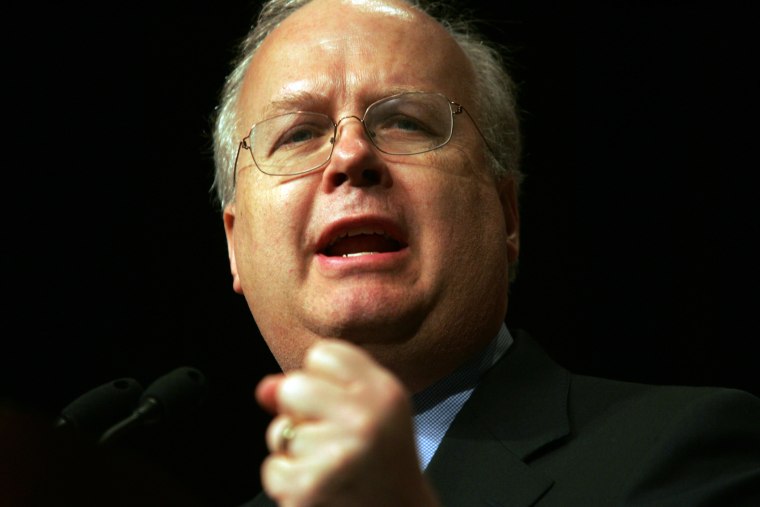A quiet but intense struggle over money and influence is roiling the Republican Party just as the 2014 election season is getting underway. At least a dozen "super PACs" are setting up to back individual Republican candidates for the United States Senate, challenging the strategic and financial dominance that Karl Rove and the group he co-founded, American Crossroads, have enjoyed ever since the Supreme Court's Citizens United decision in 2010 cleared the way for unlimited independent spending. In wooing donors, the new groups -- in states like Texas, Iowa, West Virginia and Louisiana -- are exploiting Crossroads' poor showing in 2012, when $300 million spent by the super PAC and a sister nonprofit group yielded few victories. Some are suggesting that Crossroads' deep ties to the Republican establishment and recent clashes with conservative activists are a potential liability for Republican incumbents facing Tea Party challengers.
Rove's Republican rivals step up
After several failures, the bloom is off Karl Rove's rose. The result is intra-party competition the Republican strategist is unaccustomed to.

About a year ago at this time, Karl Rove found himself in a fairly awkward position. While maintaining a prominent media role as a campaign analyst, the Republican strategist was also raising truckloads full of cash for his Crossroads operation, which was trying to buy victories for the candidates Rove was covering.
The result was a rather striking fiasco. Rove burned through several hundred million dollars, but lost nearly every race he targeted, culminating in an unfortunate on-air tantrum. Conservative activist Richard Viguerie said at the time that "in any logical universe," Rove "would never be hired to run or consult on a national campaign again."
Indeed, a Republican operative told the Huffington Post, "The billionaire donors I hear are livid.... There is some holy hell to pay."
A year later, on a superficial level, much of the landscape appears similar -- Rove still enjoys his media perches, still leads the Crossroads attack operation, and still hopes wealthy far-right donors will finance his election plans. But Nick Confessore reports that there's one important difference: Rove has more intra-party rivals, hoping to take advantage of his record of failure.
It wasn't too long ago that Rove's name carried almost mythical weight in Republican circles, which no doubt made a difference when Crossroads approached donors for checks. But after 2012, the bloom is off the rose. Rove's reputation took a hit and it hasn't recovered.
In some respects, this is overdue. In 2000, it was Rove's idea to keep George W. Bush in California in the campaign's waning days, instead of stumping in key battleground states. Bush lost California by a wide margin, and Rove's strategy practically cost his candidate the election.
In 2006, after nearly getting indicted, Rove's sole responsibility was overseeing the Republican Party's 2006 election strategy. At the time, he told NPR in late October that he'd found a secret math that gave him insights that mere mortals can't comprehend, and soon after, Democrats won back both the House and Senate in a historic victory.
And then in 2012, Rove managed to strike out in ignominious fashion with other people's money, raising questions anew about whether his reputation was ever fully deserved.
The result is skeptical GOP donors who not only see Rove as someone who can't deliver victories, but also part of a tired Republican Beltway establishment that's lost perspective. With the proliferation of groups similar to Crossroads, Rove has to worry about competition within his own party in ways he's not accustomed to.